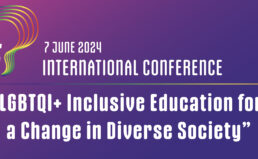At its meetingon 8 December 2010, the Committee of Education, Science and Culture approved the suggestion of Seimas members G. Songaila, V. M. Čigriejienė, R. Kupčinskas, A. Stancikienė and K. Uoka to delete the concept of equal opportunities from the draft Law on the Amendment of the Law on Education, because equal opportunities also include non-discrimination on the grounds of sexual orientation.
“Equal opportunities cannot be pursued everywhere and all the time,” stated the arguments of the members of Seimas. “For example, school is not the place where one should explore the sexual orientation of others and then seek equal opportunities according to this criterion. Minors are not always sufficiently mature enough to choose between different attitudes; their values need to be affirmed, and this is the duty of the education system. Thus, different forms of ‘homosexual education’ or, more precisely, propaganda, should not be pursued in schools. ‘Accessibility’ in this field might be incompatible with rearing duties. Moreover, there are other areas where accessibility by minors should be restricted. We propose to not include a new field of ‘equal opportunities’ in the education system ‘on the grounds of sexual orientation’, because this category is not included in the currently-valid law, either. Such ‘new opportunities’ in the education system (according to sexual orientation) are not needed.”
The Committee agreed with these suggestions in part and decided to delete the possible grounds for discrimination on the basis of ‘gender, race, nationality, language, origin, social position, beliefs, convictions or attitude, age, sexual orientation, disability, ethnic origin and religion’ altogether from art. 5(1) of the draft Law on the Amendment of the Law on Education.
The draft Law on the Amendment of the Law on Education of the Ministry of Education and Science laid down the principles of the education system, aimed at ensuring equal opportunities for all actors of the education system while assuming that the “education system is socially fair” and “it ensures actualization of people’s rights irrespective of their gender, race, nationality, language, origin, social position, beliefs, convictions or attitude, age, sexual orientation, disability, ethnic origin and religion.”



